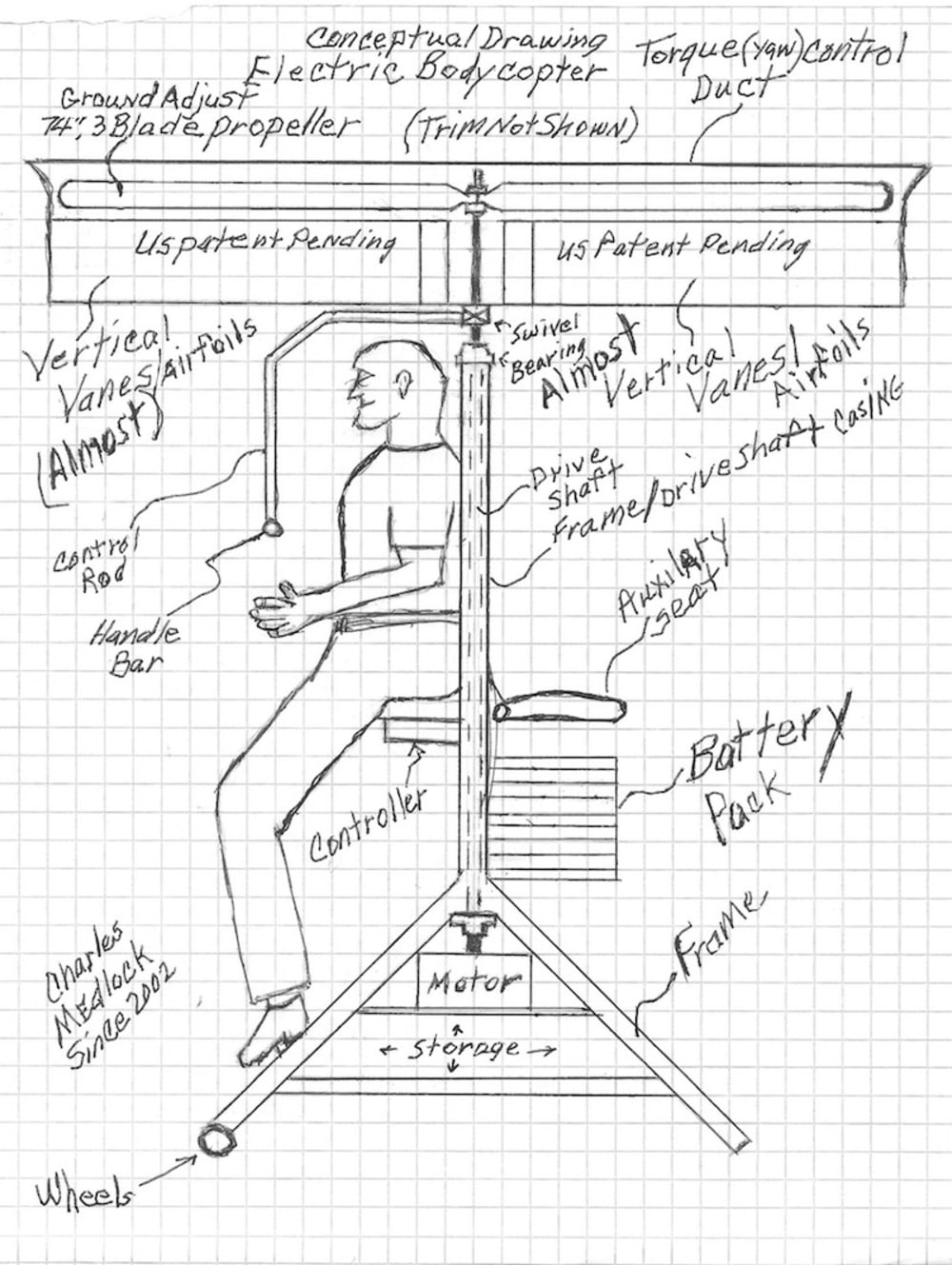Below is an abstract accepted by the 2010 International Power Lift Conference, and the 2011 Vertical Flight society, Future of Vtol. Dr. Saberi at Advanced Rotor Craft Technology did preliminary computer modeling of the TSVLS, and Dr. Khan, at Tuskegee Institute gave input to my presentations.
A flying model can be seen at www.tsvls.com
Torque Stabilized Vertical Lifting System (TSVLS.com, LLC)
Abstract –
by Charles Medlock, 43 N Badalona Drive, HSV, AR 71909
Email
Classically trained engineers have been left with the impression it is impossible to control 100% of the torque generated by a single lift rotor, using only the downdraft, within the same diameter as the lift rotor, because 100% of the torque minus 100% of the torque would leave no useable downdraft or zero lift.
This illusion has stymied the development of a torque control system with many
potential applications.
The TSVLS solves the problem by locating a lift rotor over vertical airfoils arrayed within a shroud to create “horizontal lift” in an anti torque direction. Our testing shows 100% of the torque can be controlled, balanced, with anti torque forces, even while the airfoils are at a low angle of attack.
Our testing also shows the torque remains in balance, except for minor trim
adjustments, even when power and load is increased and decreased, because as
power is increased, the downdraft is increased and the anti torque forces are
increased. The torque control is built into the TSVLS module, making it absolutely dependable.
Our thought challenge was to visualize how man could take off and land from his
driveway and fly just above treetop with the least amount of hardware. The TSVLS
is our solution to that challenge.
The results of that thought challenge has lead us to believe the TSVLS is the
cheapest, safest, simplest, absolutely dependable way to accomplish personal vertical flight. The TSVLS could be used in UAVs, as a defensive military platform, to create a 4 to 6 passenger VTOL family flyer, a 2 seat flyer, as an indoor Radio Controlled hobby craft, and in commercial and industrial lifting.
We believe the TSVLS will prove to use less power to control torque than any other method currently employed, whether it be a tail rotor, contra rotating props, or counter rotating props. The TSVLS increases lift/thrust by up to 40% because the lift rotor is located within a type “B” shroud. Airfoils have been shown to create up to 30 times the drag they create, in lift.
These facts indicate the TSVLS will operate at over 100% of the lift a rotor can produce without it, while controlling 100% of the torque generated by a single lift rotor.
Video
Like this entry?
-
About the Entrant
- Name:Charles Medlock
- Type of entry:individual
- Patent status:pending








